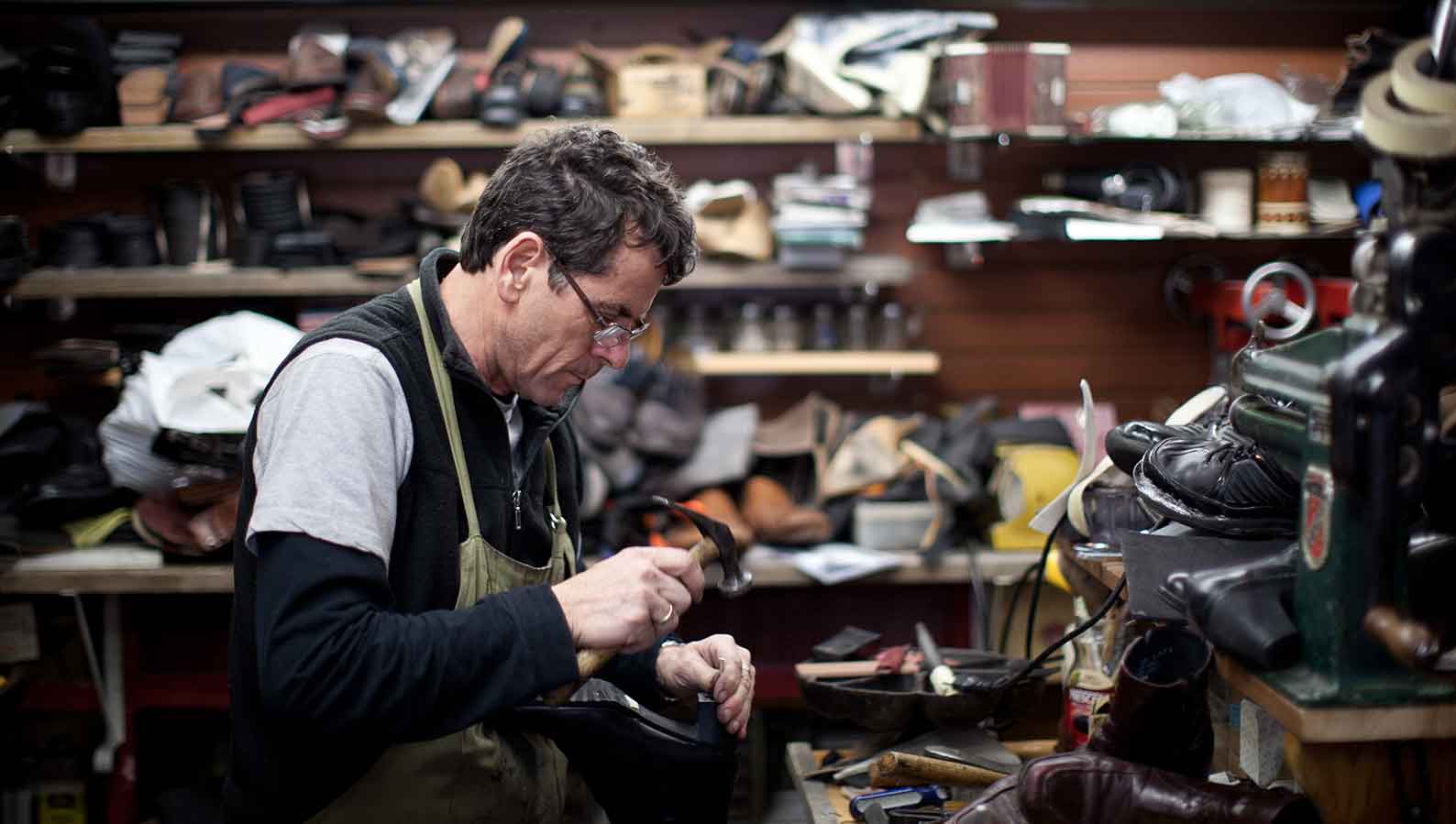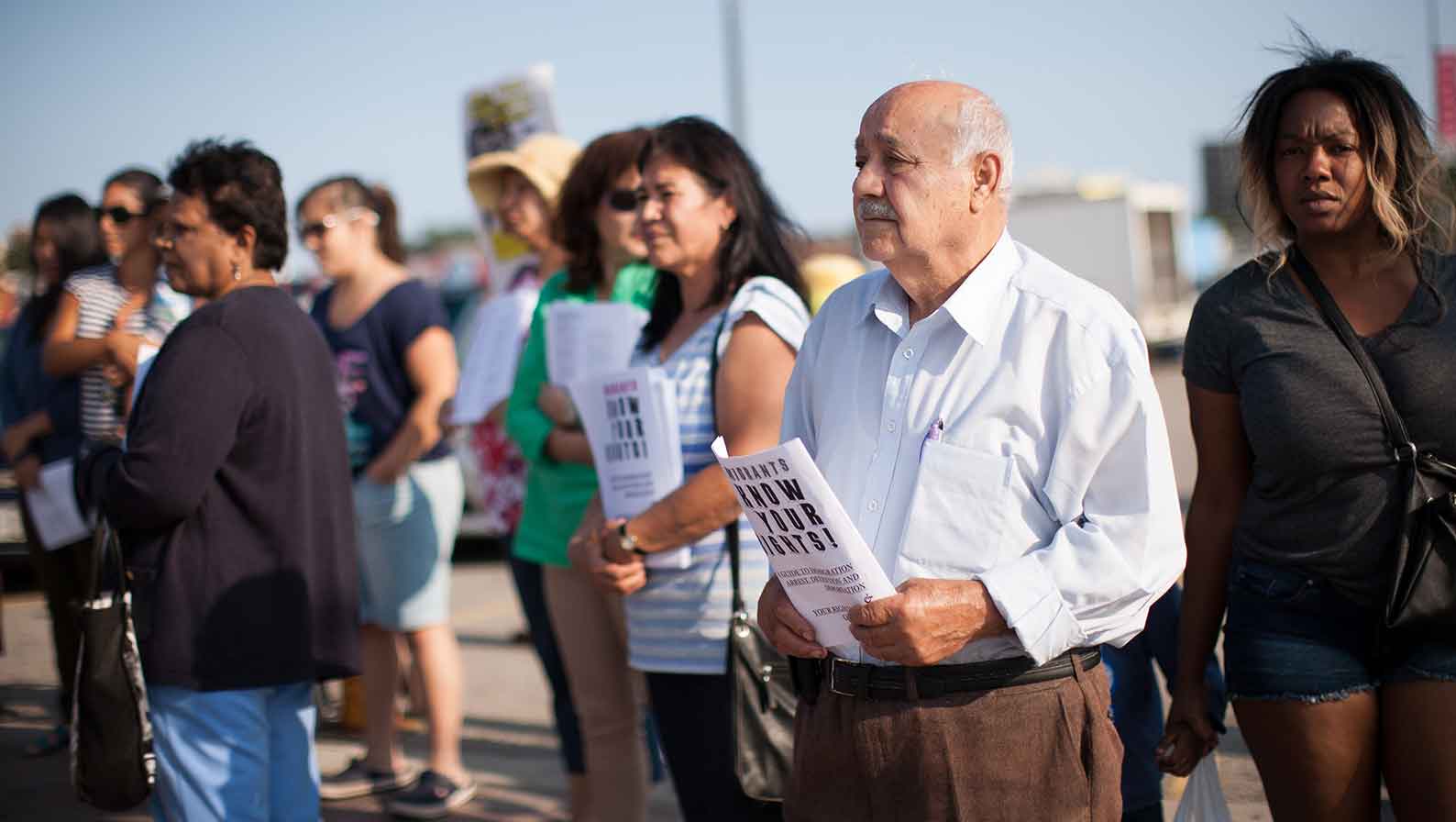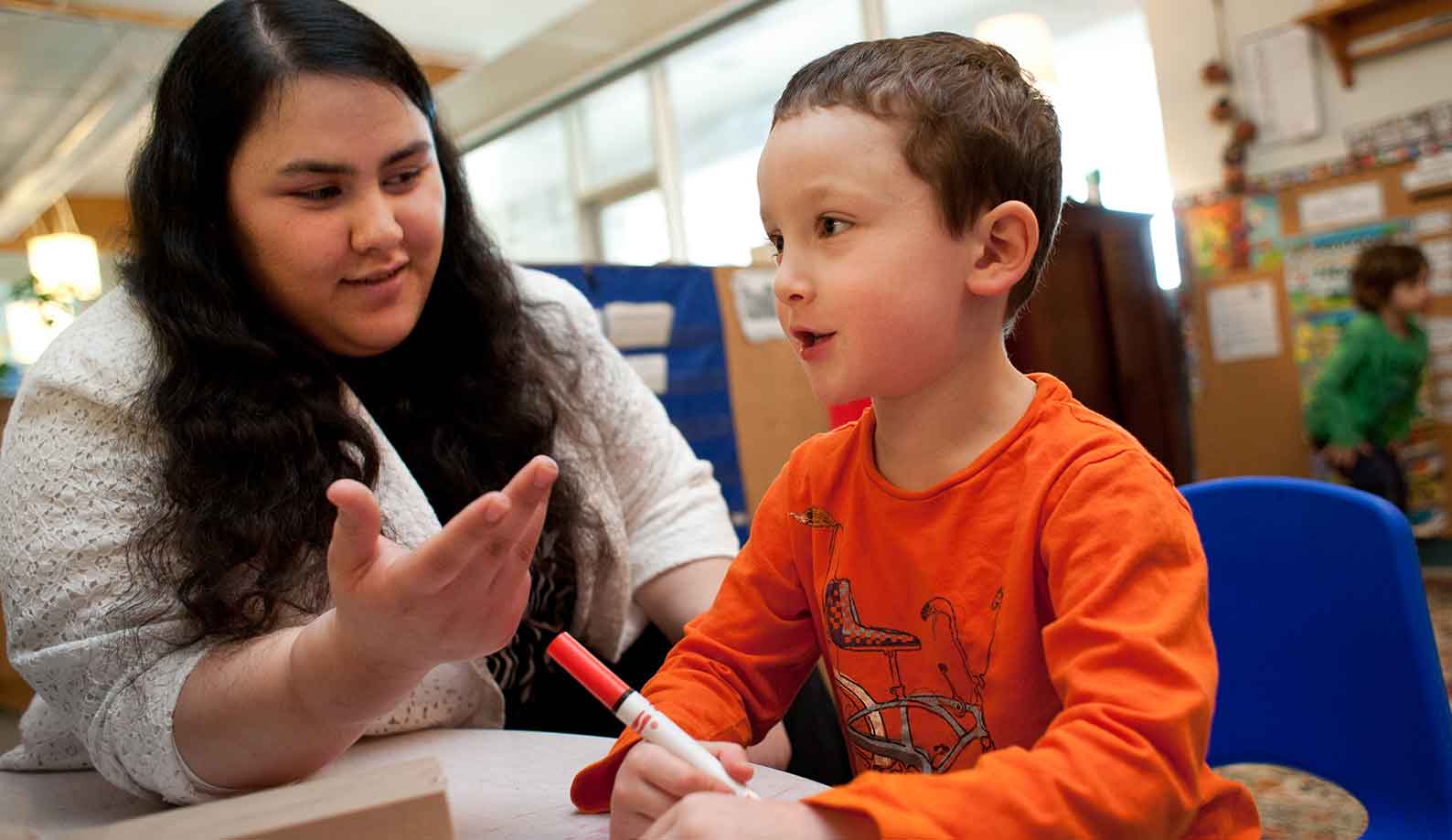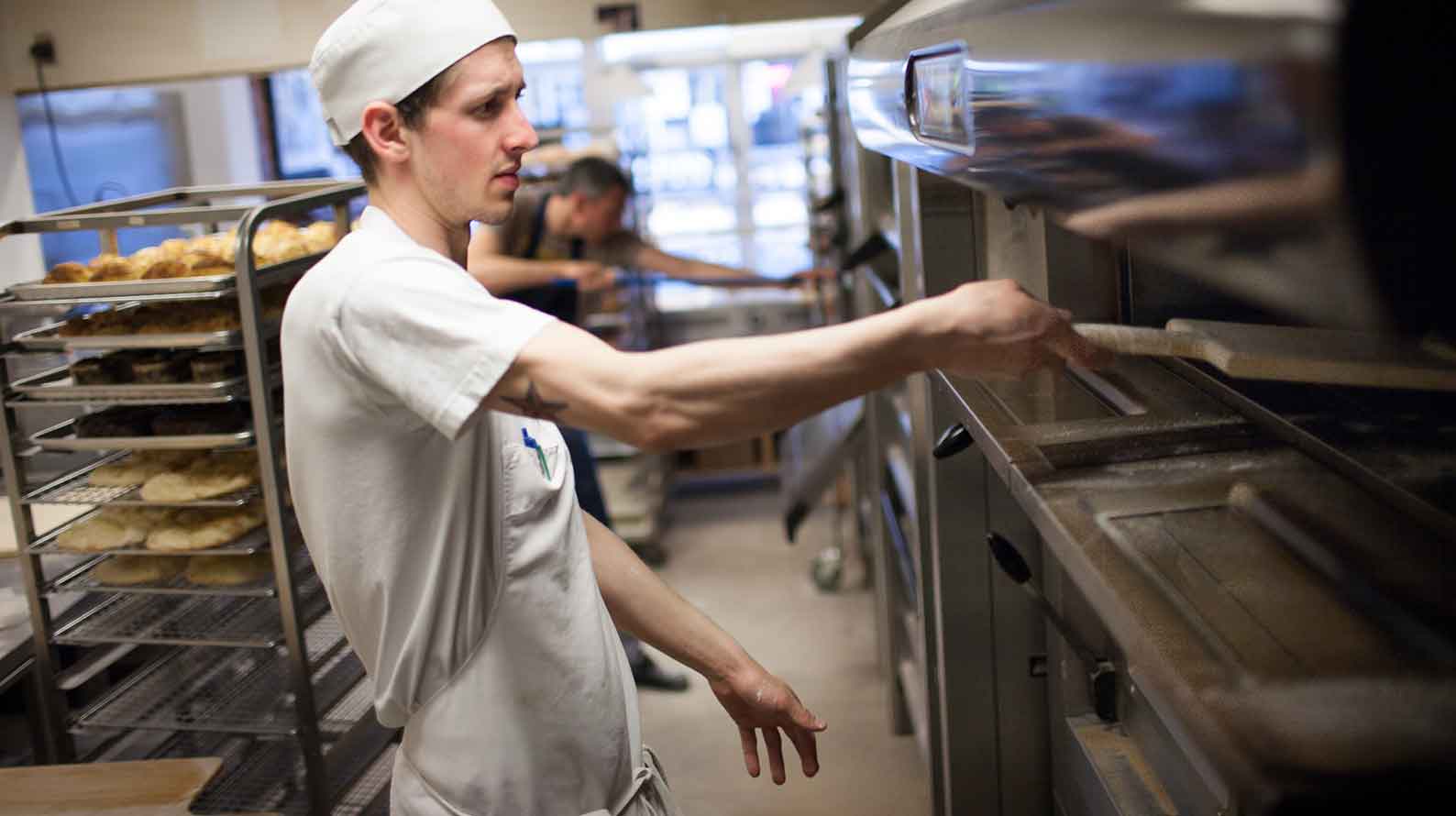
WHAT ARE YOU WORKING FOR?
Each of us has a story to tell about work.
The story is set in a particular place and time. It usually starts with the work we saw the significant adults in our lives do or not do. It includes the work we choose to do or had to do. It features people who helped or held us back along the way. It describes our routines and the structure of our days. Each chapter is a story in itself. Taken together, they tell a story about potential — blocked, unleashed, frustrated, or nurtured over our lifetimes.
From stories about work, we can learn about the private troubles that become public issues. We can get to know the names of the people who make up the latest employment statistics and the geography of the places given certain designations. We can see justice and injustice at work. The roots of inequality in opportunity, income and wealth can be unearthed. As we dig deeper into our stories, they pose an irresistible question: what are you working for?
Image: Yiorgos Aslanidis works on a shoe at Yiorgos the Cobbler in Toronto's West End. Photo: Nick Kozak

WHAT ARE WE WORKING FOR?
Atkinson has a story to tell about hard work.
One of eight children, Joseph Atkinson was born in 1865 and raised in a small town just east of Toronto. His widowed mother Hannah ran a boarding house for men who worked at the local foundry and woolen mill.
Imagine the education Joseph might have received eavesdropping on their conversation at the dinner table. He may have learned the men were part of the province-wide Nine-Hour Movement and belonged to a local league campaigning for a reduction in the workday to 9 hours from anywhere between 10 to 16. He may have even heard them debate the merits of the proposed Trade Union Act before it became the law in 1872 and gave workers the right to organize.
The world's first financial collapse occurred less than a year later. It surely meant empty dining room chairs, fewer dollars in Hannah's lockbox, and persistent grumblings about the meager portions on plates. Those who had jobs were working longer hours for lower wages despite the earlier legislative victory. Everyone living under the Atkinson roof must have formed strong bonds of respect and loyalty during these hard times. It took seven years for the economy to recover and even longer for those whose lives were upended. By then, 14-year old Joseph had to work.
One of Hannah's boarders may have helped her youngest son get his first job at the mill shortly after she died. When it burned down a few months later, Joseph relied on handouts until he landed a clerical job at the post office. There he spotted an ad for a clerk at a newspaper in a town nearby and turned that opportunity into his life's work.
Just ten years later, Joseph was a reporter in the big city who probably followed closely the story of 21 printers and their four young apprentices who were in a dispute with a rival newspaper. They were advocating for a weekly wage of $14 instead of a fixed rate for each unit produced or action performed regardless of time. When these workers left their jobs to start their own newspaper, they must have stirred Joseph's imagination even though the enterprise was doomed to fail for lack of capital. By the time a new group of wealthy and politically active investors came to him to lead the paper's turnaround, he was ready.
Joseph was ready to become the visionary publisher of the city's only progressive daily newspaper. He was ready to protect its integrity and demand complete editorial independence. He was ready to negotiate compensation in shares and wages, and to become the paper's owner over time. "The rest," says Toronto Star reporter Oakland Ross, "is printer's ink, newsprint, and an unending struggle for social reform."
In his will, Joseph Atkinson directed his executors to continue this struggle by returning the paper to the people. The Atkinson Foundation was created with the proceeds of its sale as the permanent means to this end.
We're working for social and economic justice in Ontario.
Since 1942, Atkinson has worked for changes in how Ontarians imagine and share in what economists call the "public good" — a commodity or service that's provided without profit to all members of a society. We've focused on poverty reduction, early childhood education and health. Our assets have been used to frame issues, research and public discourse. We've also invested them in convening conversations, incubating ideas, building networks, bringing solutions to scale, and giving voice to progressive consumers, shareholders, employers and community leaders.
Our story includes:
- small-scale projects with one-time or short-term grants to have a direct and immediate impact on the income status of individuals, families and communities;
- fellowships and awards to leading individuals and organizations; and,
- experiments with complex, multi-stakeholder processes, large-scale initiatives and long-term investments for systemic and culture change, notably the Atkinson Centre for Society and Child Development and the Canadian Index of Wellbeing — a promising alternative to the GDP for measuring the country's progress.
Between the lines, you'll hear values that complement the original Atkinson Principles:
- trust as the basis for long-term, creative and productive relationships
- openness to and respect for differences in opinion, outlook and lived experience
- collaboration with allies in all sectors and fields for collective impact
- accountability and transparency in the stewardship of resources
- smart risk as a prerequisite for innovation and progress
This has been hard but necessary work. Looking back, we can see we're a long way from where we started. There is, however, much more work to do.
Image: Leon Perry, a sanitation worker drives his truck during a shift in Burlington. Photo: Nick Kozak/Toronto Star

HOW CAN WE WORK TOGETHER?
Our 2014 — 2017 strategic priority is building stronger movements for decent work.
We're now in our seventh decade as one of Ontario's leading charitable foundations. In 2013, Atkinson's board and staff members stepped back to consider the province's current social and economic realities — growing disparity in income and wealth, rising economic anxiety, and increasing ambivalence about democratic institutions and practices. We also looked at evidence of progress in the past decade to help us set our course for the next three years.
In choosing our strategic priority, we decided to follow the most encouraging signs. These days, workers are campaigning effectively to raise the minimum hourly wage to $14 and to improve employment standards. Working conditions are improving steadily for early childhood educators in the move to full-day kindergarten in public schools. Technology is being used more strategically to amplify diverse civic voices and to build movements — online and offline. In the cracks and on the edges of the old economy, a new more inclusive and collaborative one is taking hold.
We chose "decent work" because it's at the core our mission. This notion takes into consideration an urgent and complex set of values, issues and outcomes, such as the:
- quantity and quality of jobs;
- sufficiency of incomes;
- acquisition of community wealth;
- health, safety and inclusiveness of workplaces;
- protection of workers' rights;
- employee-employer relationship; and,
- vitality of local economies.
Our definition for decent work comes from the International Labour Organization, building on four international declarations signed in the last century. Civilization turns its face in the right direction when it looks to these "ideals for labour," wrote Joseph Atkinson in his Labour Day editorial in 1928.
This is our starting point for conversation but not the end. Over the next three years, we'd like to hear what decent work means to you. What does it look like? How are you helping to create an economy that produces more decent work for more people?
We decided to reach out to "movement builders" — the individuals, organizations and networks best positioned to engage their communities to change the current narrative on work, wealth, wellbeing and the economy. By collaborating with them, we expect to:
- create more good jobs and secure incomes within a green economy
- gain greater labour market access and mobility, and a stronger start in the early years
- translate complex information on social and economic issues into persuasive campaigns for collective action
The Atkinson Decent Work Fund is one of our new tools.
We created it to help organizations and networks take their next steps in building movements for decent work. It's also for those who grasp the power of digital and other media for civic engagement, and want to increase our collective capacity to use it creatively and effectively.
Close to sixty per cent of our resources are committed until 2017, so we've fine-tuned our ongoing work to steer us toward our vision for Ontario's workers. This includes our responsible investing, communications and learning strategies as well as our long-standing programs — the Atkinson Fellowship in Public Policy, the Ruth Atkinson Hindmarsh Award, and poverty relief grants.
From time to time, we plan to engage individuals with special expertise to further this decent work agenda. These Atkinson Associates are practitioners who are held in high regard by their peers. They're located at the intersection of issues, communities and sectors. We think of them as advisors, capacity builders, co-creators, and connectors in taking action on our strategic priorities. Additionally, we've decided to build an entry-level paid internship program to invite like-minded young adults to work alongside us.
Over the next three years, you'll find us at the crossroads of progressive movements — the place where you can see the first signs that the world is, in fact, changing for the better. With our partners and collaborators, we'll be strategizing, organizing, and seizing opportunities to turn bystanders into civic leaders committed to creating more decent work.
Join us there. Tell us your story about work. We're listening.
Image: A demonstration at the southeast corner of Jane Street and Finch Avenue against racial profiling and anti-immigrant raids and traffic stops in Toronto. Photo: Nick Kozak

2013 GRANTS
We invested over $2.6 million in promoting social and economic justice, including grants to the following organizations:
ACORN Institute Canada
Atkinson Centre for Society and Child Development @ University of Toronto (OISE)
Better Child Care Education
Canadian Centre for Policy Alternatives
Canadian Children's Dance Theatre
Canadian Index of Wellbeing @ University of Waterloo
Church of St. Peter Food Bank
Community Food Centres Canada
Community Resource and Employment Service
David Busby Centre
Flemington Park Ministry
Health Nexus | Canadian Doctors for Medicare
Labour Community Services | Toronto Community Benefits Network
Mowat Centre NFP
Newcomer Women's Services Toronto
Ontario Employment Education and Research Centre | Workers' Action Centre
Pegasus Community Project
People for Education
St. Christopher House | MASS LBP
Sistering - A Woman's Place
Social Planning Toronto
Stop Community Food Centre
Urban Alliance for Race Relations
Working for Change
Veteran journalist Peter Goodspeed was named the 2013 — 2014 Atkinson Fellow in Public Policy. He's investigating Canada's refugee policy.
Boost Child Abuse Prevention and Intervention received the 2013 Ruth Atkinson Hindmarsh Award.
Image: Zoubayda Choucair, a student in the BA in Early Childhood Education Leadership — a joint program between George Brown College and Ryerson University — working with Isaiah Steinman Gould. Photo: Nick Kozak/Toronto Star

2013 LEADERSHIP
BOARD OF DIRECTORS
STAFF
Image: Student Zohra Ahsan speaks during Psychology Professor Steve Joordens' class at the University of Toronto, Scarborough campus. Photo: Nick Kozak/Toronto Star

2013 FINANCIALS
A 2013 financial summary can be downloaded here.
Image: Baker Brenan Clarke loads an oven at Blackbird Baking Company in Toronto's Kensington Market. Photo: Nick Kozak

WORK WITH US!
ATKINSON FOUNDATION
One Yonge Street, Suite 702
Toronto, Ontario M5E 1E5
Tel: 416.368.5152
Fax: 416.865.3619
Email: info@atkinsonfoundation.ca
Click here to subscribe to our mailing list for occasional updates on:
- Funding opportunities and announcements
- Priority issues and related initiatives
- Foundation news and activities
Image: Actress Annick Obonsawin at Optix Digital Pictures recording in the studio. Reflected and working in the adjacent room are: (front to back) Gabriella Sundar Singh of Centennial College's children's entertainment course, Ryan Aktari and Gitte Barrow. Photo: Nick Kozak/Toronto Star
